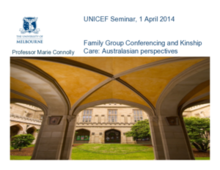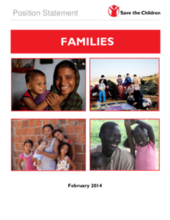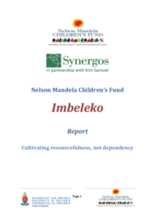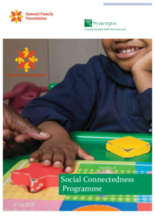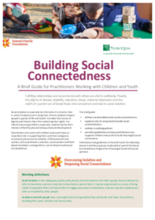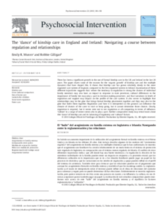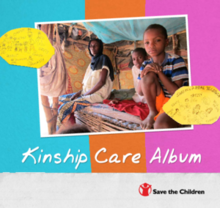Displaying 51 - 60 of 72
This article explores some of the ways that Buddhism expresses care for its children.
This webinar presentation by Professor Marie Connolly of the University of Melbourne introduces the history and background of Family Group Conference (FGC) in New Zealand and Australia and discusses the influence of FGC on the development of formal or statutory kinship care in the region.
This position statement by Save the Children highlights the central place of families in numerous international legal instruments and how the concept has been understood. It also clarifies its own understanding of families and reviews key provisions under international law regarding their crucial role and responsibilities, and that of States towards them.
This report is based on a synthesis of eight assessments of the implementation of the Guidelines for the Alternative Care of Children (“the Guidelines”) in Benin, Gambia, Kenya, Malawi, Tanzania, Togo, Zambia and Zimbabwe.
The purpose of the ‘Imbeleko and social connectedness’ project was to conduct a cross-sectional study in order to explore and describe indigenous ways of care and support to inform policy and intervention.
This report describes the Social Connectedness Programme and the three strands of research that inform it. The report defines social connectedness and social isolation and explains the benefits of social connectedness.
This brief guide: defines social isolation and social connectedness; explains why it is important to build social connectedness; outlines enabling policies; provides guidelines on how practitioners can support children and youth to build meaningful social connections.
There has been a significant growth in the use of formal kinship care in the UK and Ireland in the last 20 years. The paper charts some of the reasons for the 'organic growth' of kinship care and the multiple dynamics that have shaped this.
This Kinship Care Album was produced as part of a regional participatory research initiative undertaken by Save the Children to build knowledge on endogenous care practices within families and communities, especially informal kinship care. The Album is a compilation of documentation by children who participated in the research, including resource maps, body maps, photos of focus group discussions and observations by child researchers, pictures and letters from children highlighting their experiences of living in kinship care, their views and recommendations about life in kinship care.
Zero to Three, a US based non profit organization working to inform, train and support professionals, policy makers and parents to improve the lives of infants and toddlers, combined the evidence from research on early childhood development with feedback from focus groups with families, friends, and neighbors who act as care givers to develop a range of practical resources to strengthen care practices with children between the ages of 0 and 3.

